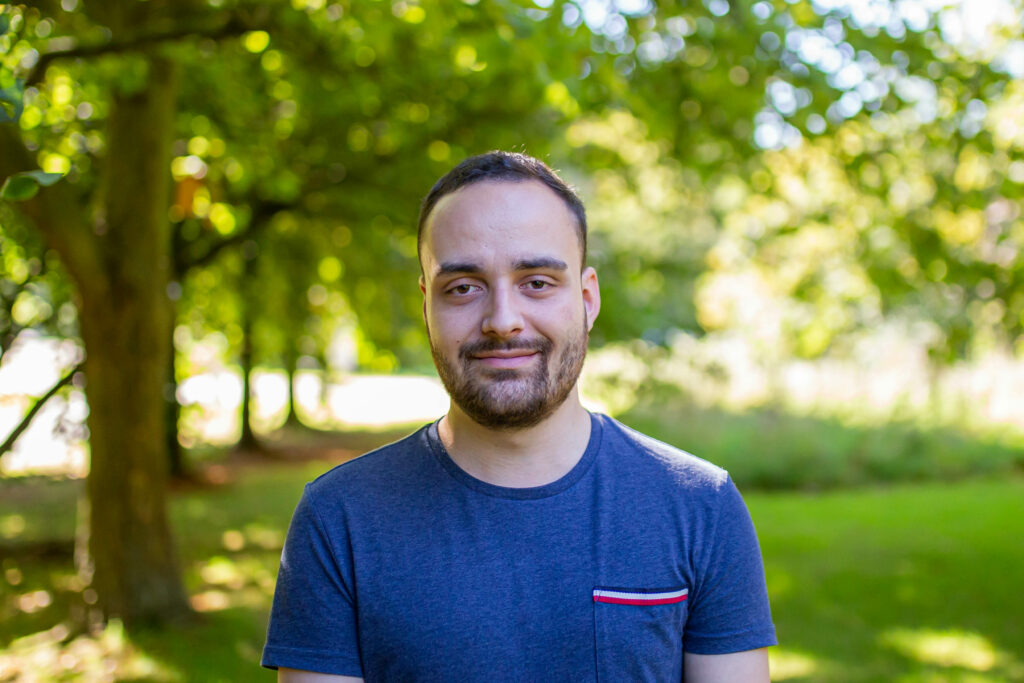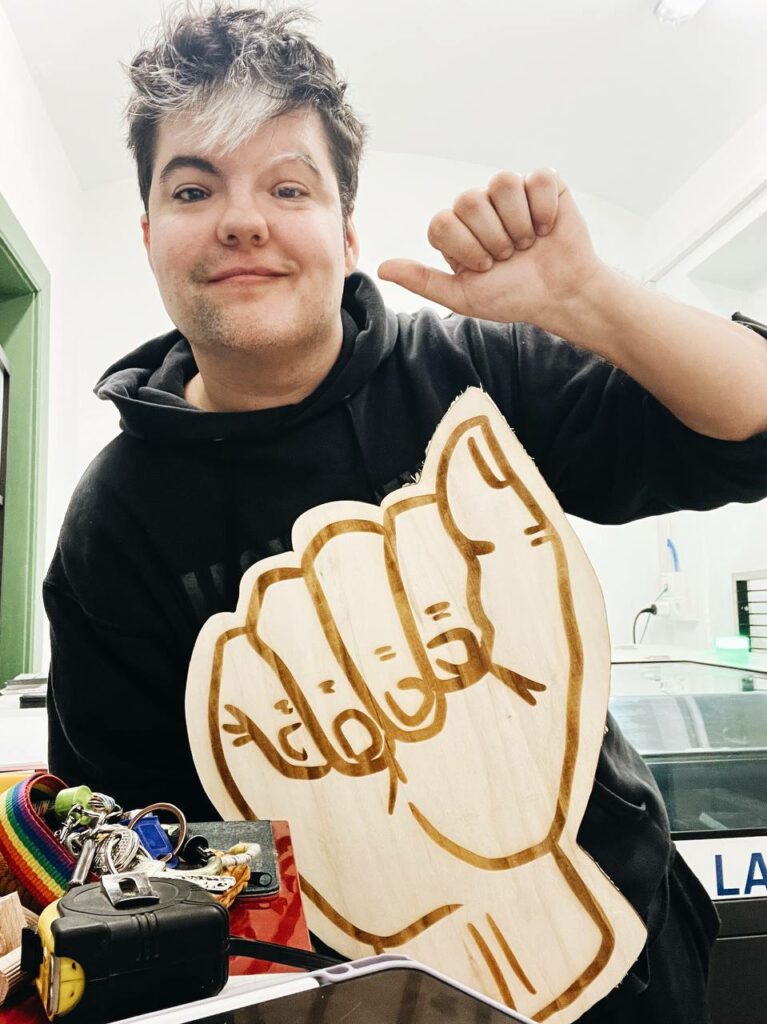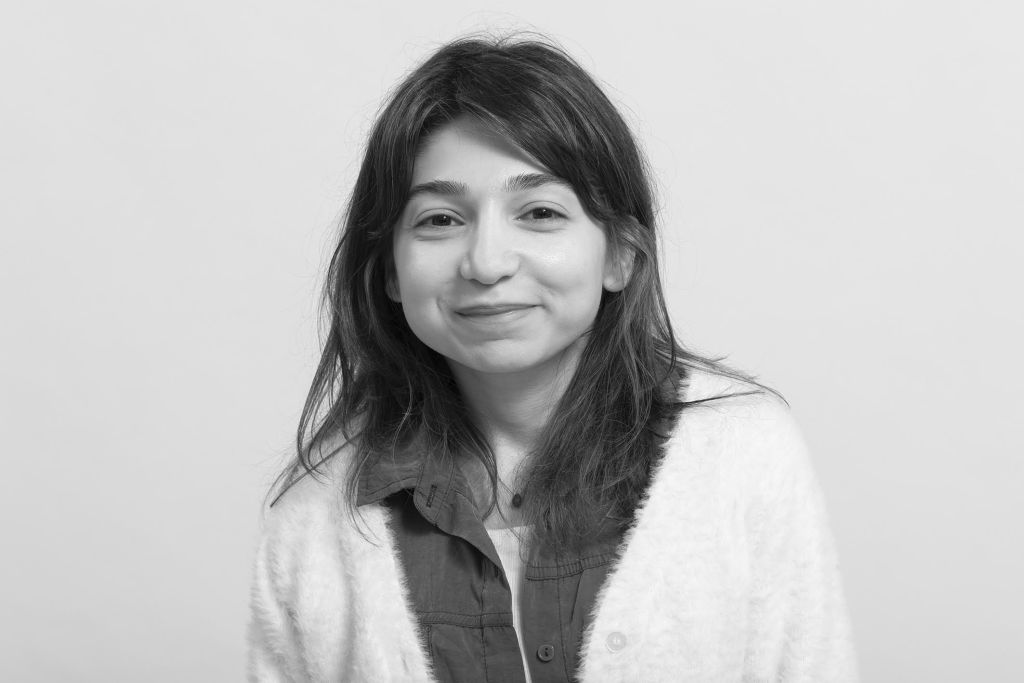The State of (In)Accessibility in Academia
Since their establishment at MuC 2022, the Diversity, Equity, Inclusion & Accessibility (DEI & A, initially only „Diversity“) Chairs organize one 90-minute session focused on a topic of their choice.
This year, Sabrina Burtscher, Frauke Mörike, and Gerhard Weber decided to organize a panel discussion with a focus specifically on academia and how we could make it more accessible.
The panel will take place on Tuesday, September 3 at building 30.95 Audimax, at 4.00-5.30 pm.
The panel discussion will take place in Austrian Sign Language and spoken English. Interpreters will be translating in between these two languages.
Below, we will introduce the panelists briefly. More detailed information will be available soon.

Christoph Burzlaff
Christoph Burzlaff is a research and teaching fellow as well as a PhD student in the Department of Work, Inclusion and Technology (Faculty of Rehabilitation Sciences, TU Dortmund University) since March 2023. He studied rehabilitation education in his Bachelor’s degree and rehabilitation sciences in his Master’s degree at TU Dortmund University. His research focuses on the vocational rehabilitation system in Germany, specifically focussing on vocational training centers and workshops for people with disabilities. In his associated dissertation project, he is researching the digital transfer of skills in vocational training centers, which are key skills that affect the labor market opportunities of people with disabilities. He is part of the First Generation Academics and talks about the (in)accessibility of Academia from this perspective.

Oliver Suchanek
Oliver (es/es, they/them) is a Student Assistant at the Institute for Visual Computing and Human Centered Technology at the Faculty of Informatics at TU Wien. They focus on the reappraisal of accessible art by using technologies with their work as a Deaf curator. Dedicated to reshaping technology access in order to empower deaf individuals in asserting their autonomy, they collaborate closely with the CCC hacker scene and the deaf community. Currently, they are studying Transmedial Arts (Diploma Studies) at the University of Applied Arts and are pursuing an education as a sign language lecturer in collaboration with the University of Salzburg and Educational University of Pedagogy Salzburg.

Zeynep Yildiz
Zeynep (she/her) is a children’s books writer and researcher in Real World Lab Accessibility at Karlsruhe Institute of Technology (KIT). Her background is in psychology and design, and she holds a PhD from Koc University. Her research at KIT focuses on understanding the interdependent relationship of disabled people with technology and space, specifically in the museum settings. She uses ethnographic methodologies to investigate how museums may provide an equal experience for its disabled visitors, from a Disability Justice oriented perspective and also experiments around self-ethnographic methodologies to discover new perspectives around her own experiences as a disabled person.
